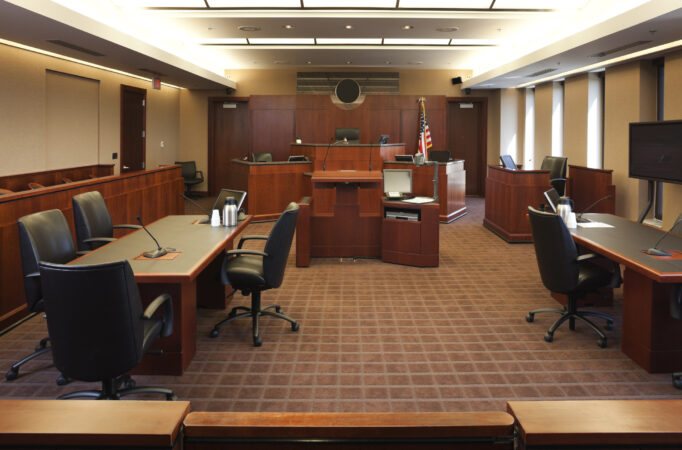Litigation: Latest Legal Blogs and News
Pennsylvania Products Liability Law: Amazon May be Liable for Defective “Marketplace” Items in Oberdorf Case
What role does Amazon play when third party vendors sell defective products? The Third Circuit has recently issued an opinion on the issue in the case of Oberdorf v. Amazon.com Inc., No 18-1041 (3d Cir. 2019). The Third Circuit has held that Amazon can be liable as a “seller” for defective products sold by third parties on its marketplace site, under Pennsylvania products liability law.
The facts of the case are straightforward. Heather Oberdorf was walking her dog on a retractable leash, when the dog lunged, causing the d-ring on the collar to break. The leash recoiled back, hitting Oberdorf in the face and eyeglasses. The injury resulted in permanent blindness in her left eye. The collar was purchased on Amazon.com from a seller by the name of “The Furry Gang.” Neither Amazon nor Oberdorf were able to locate The Furry Gang.
Oberdorf sued Amazon in the U.S. District Court for the Middle District of Pennsylvania alleging claims for strict liability, negligence, breach of warranty, and other related claims. Following Amazon’s Motion for Summary Judgment, the District Court found that, under Pennsylvania law, Amazon was not liable for Oberdorf’s injuries. In its opinion, the District Court emphasized that a third-party vendor-rather than Amazon itself-listed the collar on Amazon’s online marketplace and shipped the collar directly to Oberdorf, concluding that Amazon is not a “seller” under Pennsylvania products liability law. The Obderdorfs appealed to the Third Circuit. A 3-judge panel decided the issue, reversing the lower court and finding that Amazon was a “seller.”
Under Pennsylvania law, strict liability is limited to “sellers” of products. Amazon argued that it is not a “seller” because it merely provides an online marketplace for products sold by third-party vendors. The Third Circuit disagreed following the examination of a four-factor test set forth in the 1989 Pennsylvania Supreme Court decision, Musser v. Vilsmeier Auction Co, Inc., 562 A.2d 279 (Pa. 1989), which involved the sale of a tractor via auction. Following an injury involving the tractor, the plaintiff in Musser sought to hold the auction house strictly liable as a “seller” of the allegedly defective tractor. Ultimately, the Supreme Court did not determine that the auction house was a “seller,” but in reaching that decision, the Court set forth a four-factor test for examining whether an actor is a “seller”: (1) Whether the actor is the “only member of the marketing chain available to the injured plaintiff for redress”; (2) Whether “imposition of strict liability upon the [actor] serves as an incentive to safety”; (3) Whether the actor is “in a better position than the consumer to prevent the circulation of defective products”; and (4) Whether “[t]he [actor] can distribute the cost of compensating for injuries resulting from defects by charging for it in his business, i.e., by adjustment of the rental terms.”
The Third Circuit examined the four factors set forth in Musser. First, it concluded that Amazon was the “only member of the marketing chain available to the injured plaintiff for redress” because the plaintiff was unable to locate the vendor. However, the Court also noted that Amazon enters into agreements with its vendors that restrict them from communicating with customers on any other platform. The Court determined that “this enables third-party vendors to conceal themselves from the customer.” Second, the Court held that imposition of strict liability upon Amazon would incentivize safety because Amazon “exerts substantial control” over the vendors and “is fully capable, in its sole discretion, of removing unsafe products from its website” by virtue of its vendor agreements. Third, the Court determined Amazon was “in a better position than the consumer to prevent the circulation of defective products” because Amazon receives customer feedback regarding defective products while contractually limiting vendors’ direct channels of communication with customers. Fourth, the Third Circuit found that Amazon already distributes the cost of compensating for injuries through indemnification provisions in its vendor agreements. Therefore, the Court determined that all four Musser factors weighed in favor is finding Amazon to be a “seller.” In addition to the Musser factors, the Court determined that its decision was also consistent with other Pennsylvania decisions on strict liability, including cases involving sales agents. However, the Court determined that Amazon’s “role goes beyond a sales agent, as it not only accepts order and arranges shipments, but also exerts substantial market control over product sales by restricting product pricing, customer service, and communications with customers.”
The Court’s determination that Amazon is a “seller” under PA Law could have sweeping consequences and significant liability exposure for not only Amazon, but also many other online marketplaces and third-party vendor platforms using similar models. Amazon has petitioned for a reargument en banc, which is currently pending before the Third Circuit. We will continue to follow this important case.
About Us
The litigation attorneys at Houston Harbaugh, P.C., are accomplished business trial lawyers, providing comprehensive support in litigation across a broad spectrum of matters throughout Pennsylvania, West Virginia, Ohio and other jurisdictions upon a special admission basis. Our clients are regional and national small, medium and large companies and individuals who seek well planned and aggressive, but cost effective litigation. We counsel, we budget, we have a deep bench, we act quickly when needed and we have experienced trial lawyers who know the courts and bench. We serve regularly as local counsel for some of the largest law firms in the country when they have matters in this region.

Henry M. Sneath - Practice Chair
Co-Chair of Houston Harbaugh’s Litigation Practice, and Chair of its Intellectual Property Practice, Henry Sneath is a trial attorney, mediator, arbitrator and Federal Court Approved Mediation Neutral and Special Master with 98 trial verdicts and extensive federal and state court trial experience in cases involving commercial disputes, breach of contract litigation, Artificial Intelligence (AI), intellectual property matters, patent, trademark and copyright infringement, trade secret misappropriation, DTSA claims, cyber security and data breach prevention, mitigation and litigation, employment and restrictive covenant litigation, probate trusts and estates litigation, construction claims, eminent domain, professional negligence lawsuits, pharmaceutical, products liability and catastrophic injury litigation, insurance coverage, and insurance bad faith claims. DTSALaw® Business Litigation. Pittsburgh Strong.®

Samuel H. Simon - Practice Chair
As co-chair of Houston Harbaugh’s Litigation Group, Sam focuses his practice on commercial/business litigation. Sam regularly represents clients in the construction, manufacturing, oil and gas, and wholesale/retail/ distribution industries, as well as individuals in matters such as:
- Construction litigation
- Environmental litigation
- Breach of contract disputes
- Oil and gas litigation
- Negligence
- Restrictive covenants (non-compete agreements)
- Civil rights
- Collections/creditors’ rights
- Lease disputes

